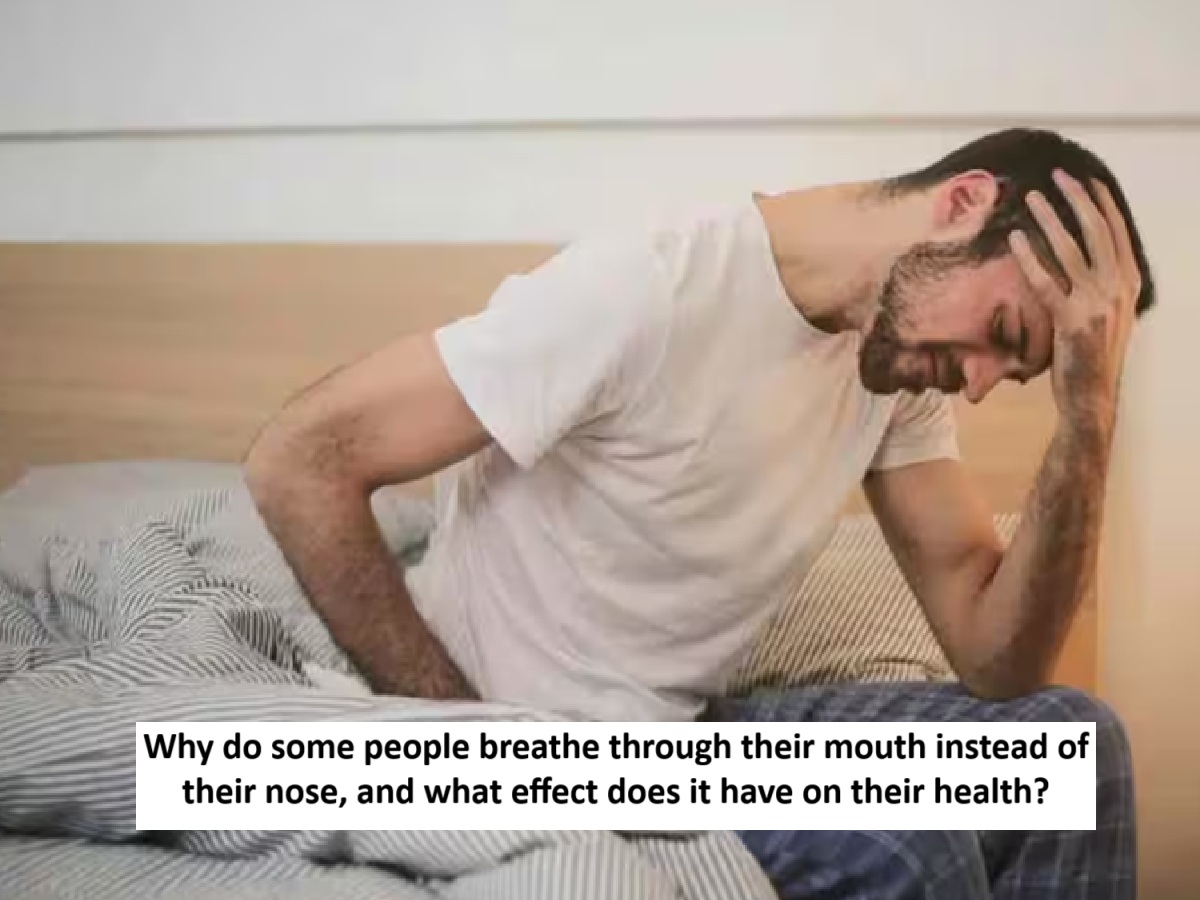
News Topical, Digital Desk : Many times, we wake up in the morning and find our mouths extremely dry or there are traces of saliva on our pillow. These could be signs that we were breathing with our mouths open at night, meaning we were breathing through our mouths instead of our noses. This may sound normal, but continuing to do so can have many health consequences. Our bodies are designed to breathe through our noses. When we breathe through our noses, air first passes through the nasal passages, where it is cleaned, warmed, and moistened.
Tiny cilia and mucus inside the nose block things like dust, pollution, and bacteria. This makes the air reaching the lungs more beneficial for the body. However, when nasal breathing becomes difficult for some reason, the body automatically begins breathing through the mouth. If this habit persists for a long time, it is called mouth breathing. So, let us explain today why some people breathe through their mouth instead of their nose and what impact it has on health.
Why do people breathe through their mouths instead of their noses?
1. Nasal congestion - A cold, allergies, or sinus problems can cause a blocked nose. Breathing through the nose becomes difficult, forcing the body to use the mouth.
2. Enlarged adenoids or tonsils - Children often have enlarged adenoids or tonsils, which can block the nasal passages. This can also cause people to breathe through their mouths instead of their noses.
3. Nasal structure defects – If someone has a deviated septum or nasal polyps, the airway can become blocked, which can also cause people to breathe through their mouth instead of their nose.
4. Jaw or facial structure – Some people have a facial or jaw structure that allows the mouth to remain slightly open, making it easier to breathe through the mouth.
5. Habit or behavior – Sometimes this problem also arises due to the habit of sucking thumb or keeping the mouth open repeatedly in childhood.
6. Sleep apnea - This is a sleep disorder in which breathing stops intermittently during sleep. In this condition, people often breathe through their mouths.
What effect does it have on health?
1. Dry mouth and bad breath - Saliva keeps our mouths clean and moist. When we breathe through our mouths, saliva dries up, allowing bacteria to grow and causing bad breath.
2. Tooth and gum disease - Saliva contains minerals that keep teeth strong. Dry mouth can lead to cavities and gum inflammation. If this continues for a long time, it can even lead to loose teeth.
3. Sleep problems - Mouth breathing reduces sleep quality. It can lead to sleep apnea, a condition in which breathing pauses at night and deprives the brain of adequate oxygen supply. This can lead to fatigue, irritability, and difficulty concentrating during the day.
4. Impact on facial and dental growth in children - If a child consistently breathes through their mouth, their face may become elongated and their jaw may become narrow. This can lead to crooked teeth and the need for orthodontic treatment later on.
5. Brain fog and fatigue - Mouth breathing reduces oxygen levels in the body, which hinders proper brain function. This can lead to a feeling of drowsiness and blurred vision throughout the day, known as brain fog.
--Advertisement--

 Share
Share



